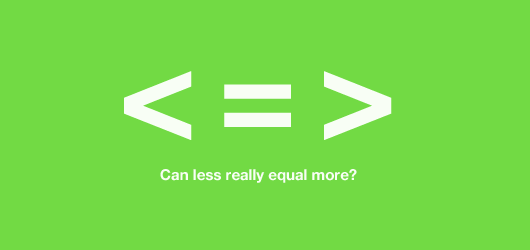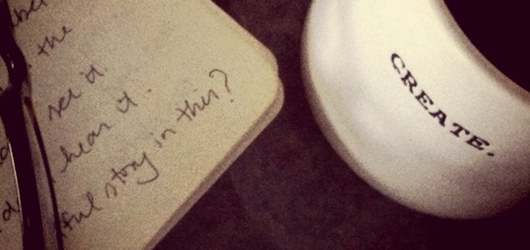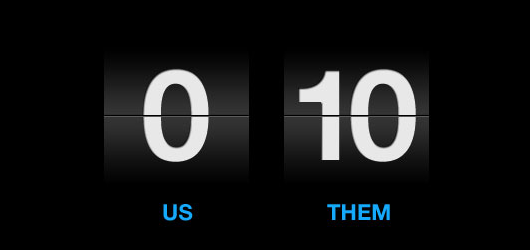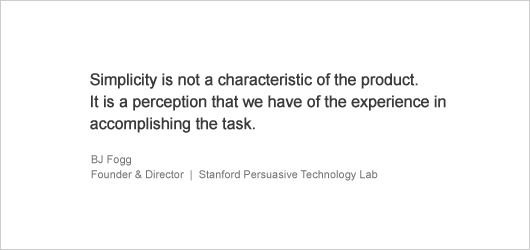Last week I quit my job. I wasn’t going to write one of these blog posts. But the thing is, I love to write, and above all, I love stories and the power they have to inspire, entertain, and educate. The process of writing – the forced creation and evaluation of your story Continue reading
TED Tuesday: Graham Hill “Less Stuff, More Happiness”
I have to admit, lately I’ve found myself on a de-cluttering kick. I’ve been trying to figure out what triggered this new hobby – and my subsequent new weekend ritual of taking bags of stuff to HousingWorks in Tribeca.
When I think about it, it really boils down to wanting a simpler life. With less stuff, comes more time, more freedom, and more space. It’s about having more opportunity to surround yourself with the things and people that matter, creating less physical and mental distractions, and exercising restraint against the ever present addiction we have to consumption as a society. I think that our homes and how we live are a projection of how we approach the rest of our lives. If we don’t recycle and are wasteful at home, it’s likely that we are wasteful with other resources, such as at the office or in relationships. Continue reading
9 Ideas For Designers & Everyone To Live By
Years ago while living in Portland, I wrote this as a reminder of why I do what I do.
Having recently found it and being inspired, I thought I’d share it with my designer friends … a source of inspiration for people who are just starting their careers, a kick in the ass for people who maybe need to make a change, and a reminder for everyone else, that there is no ‘there’ and that what matters most is not what you achieve, but who you become along the way.
1. Look beyond the immediate
Don’t let yourself become paralyzed by the situation you’re currently in. Whether you’ve hit rock bottom or feel like you are at the top of your career, always remember to look to the future – to examine your potential – to look beyond the immediate.
2. There’s always room at the top
If you are great at what you do, people will notice – whether they are looking for it or not. When people find someone who is great, someone who has authentic passion, talent, and persistence that is so rare, they will take notice. People will carve a place out at the top for those who choose to be great.
3. We’ve all done our time
Along the journey, each person will likely find themselves in a place where they don’t fully enjoy where they are at. Realize that these times are only temporary – and if we choose, lessons can be learned along the way – that will help you get to where you want to be.
4. Seek wonder in the detail
Train yourselves to be an observer. Learn how to filter through the noise and see the beauty and inspiration that we often let pass us by each day. Slow down. Don’t think so much. Learn to imagine again and think like a child – with curiosity, inquisitiveness, and fearlessness of the unknown.
5. Discover your strengths
Each person is born with inherent gifts – unique talents that when discovered, should not be ignored. Realize that you’re greatest potential will be realized when you focus on your strengths, instead of trying to fix your weaknesses.
6. Work from the inside out
In creative projects, in life, in everything – learn that you need to work form the inside out. You can’t know your purpose until you know who you are. Likewise, you can’t know a design, until you have an intimate understanding of the product or service, you can’t build a great building until you know each intricate detail about how it needs to function. Work from the inside out and the design will come naturally as a result of the intimate understanding of purpose.
7. Make your own rules
Change is inevitable. You must be flexible and agile to adapt to the
change that you face each day. Don’t allow yourself to be caught up in doing things the right way. Do what works – in the context of the situation – in the context of change.
8. Ask stupid questions
People love to be listened to. It is validating, empowering, and flattering. Take time to focus on listening more than speaking and you will be amazed at what type of information and ideas people will naturally volunteer.
9. Love the process
Forget the destination. The destination is dead. Half of the time you have no idea what the destination is. Learn to appreciate the process. Understand that what you learn during the journey is far more precious than the destination.
High School, Start Ups, And The Power Of Perspective
In high school, I was on the volleyball team. We were pretty good, but we had one big problem. In volleyball, you play until you get to 21 points. Every time we’d get to 10 or more points, we’d just simply freeze up. We missed plays, we messed up serves, we just couldn’t play anymore. One day in the middle of a game, when we reached 10 points, our coach called a time out, gathered us on the court and said “You’re down. The score is now 0, 10 … for them”. We went on to win the game.
Every game for the rest of our team’s career, when we’d reach 10 points, we would all yell “0,10”!!! I’m sure the other teams thought we were completely crazy. But this reverse psychology worked for us.
Sometimes when you think you’re winning the game, it’s easy to fall into the trap of guaranteed success, entitlement, or feeling more secure than you should. But the truth is, it doesn’t matter where you are right now. Because in an instant, the other team could catch up. And for my little volleyball team, we needed to think different. We needed to focus not on where we were, but where we were headed.
I’ve been thinking a lot about this, and it’s especially relevant in start ups. A small victory can give you a boost of confidence and make you feel like you’re on top of the world, that there’s no way your idea could actually fail. But it’s at those very times that we tend to ease up a bit, get a little too comfortable, and leave just enough room for the other people to catch up.
Small victories are great, but the key is to not lose sight of the rest of the game that’s in front of you. Because chances are, in order to win you’ll have to overcome about a million times more setbacks than you faced to get to that one small victory.
Only you know what it took to get to where you are. But the truth is, it doesn’t matter where you are right now. What matters is what you are doing to get to the next level. And to get to the next level, sometimes you need to turn your focus away from any victories you’ve had, and keep your vision on what’s yet to be achieved.
The Perception Of Simplicity
Lately I’ve been reading and studying the idea of how people can change their lifestyles through measured behavior, or what I call Personal Metrics. At the heart of Personal Metrics is the need for persuasion, whether aligning a new idea, adopting a new attitude, or modifying their behavior.
In my research, I’ve discovered the work of BJ Fogg who coined the idea of Captology, which is the study of computers and their use as persuasive technologies. As Founder & Director of the Stanford Persuasive Technology Lab, Fogg helps create insight into how computers and technology can be designed to change what people believe and what they do.Continue reading




